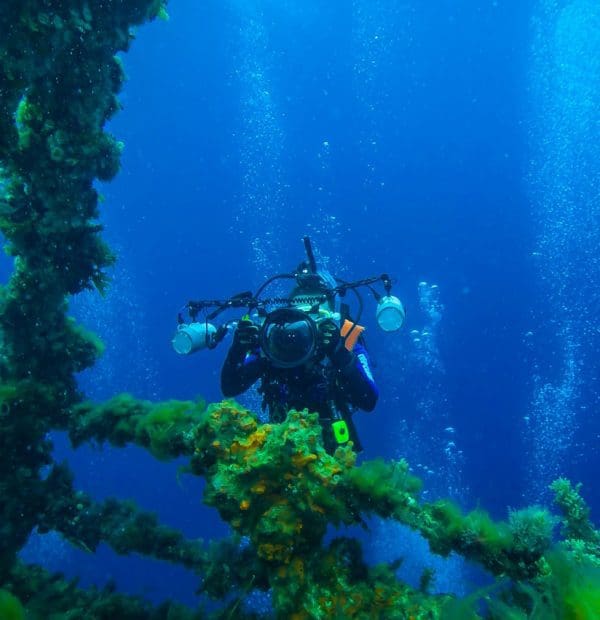Introduction
Scuba diving opens up a world beneath the waves, a realm where adventure and the unknown meet. For those who have tasted the thrill of diving and want to delve deeper into this fascinating world, specialty scuba diving certifications offer a pathway to new experiences and skills. These certifications are designed not only to enhance your diving capabilities but also to tailor your underwater adventures to your interests and goals.
This article serves as a comprehensive guide to the diverse range of specialty scuba diving certifications available. Whether you’re looking to explore deeper waters, wrecks, or even take breathtaking underwater photographs, specialty certifications can provide the training and knowledge you need to do so safely and enjoyably.
Benefits of Specialty Certifications
By pursuing specialty certifications, divers can specialize in areas that fascinate them, enhancing both safety and enjoyment. These courses offer focused training on specific aspects of diving, allowing divers to safely explore environments that go beyond the scope of general recreational diving. From increasing bottom times with Nitrox, navigating silently through shipwrecks or capturing vibrant life in underwater photography shots every certification is just another chapter that further deepens one’s repertoire towards mastery in each niche.
Ultimately they enrich the diver’s profile bringing each dive from being just another dive into an act towards competence within a preferred domain.
Popular Specialty Certifications
Deep Diver
For those drawn to the depths, the Deep Diver specialty pushes the boundaries of recreational diving, extending your range down to 40 meters (130 feet). This certification covers advanced techniques for managing increased risks associated with deeper dives such as gas management techniques; emergency procedures; use of specialized equipment etc.; It’s like taking baby steps unto a whole new level beyond usual recreational dive depth limits!
Nitrox Diver
The Nitrox Diver certification is essential for divers looking to enhance their bottom times and reduce their nitrogen exposure on repetitive dives. It is also required for tech diving and Advanced Nitrox Certifications. This course teaches you how to safely use enriched air nitrox, a breathing gas that has a higher oxygen content than regular air, which can significantly extend your underwater time, particularly on successive dives. It also looks at issues related to managing oxygen exposure and the modification of diving plans necessitated by the use of enriched air.
Wreck Diver
There’s something hauntingly beautiful about wrecks that attracts divers. The Wreck Diver specialty offers the skills and knowledge needed to safely explore sunken vessels. This includes learning how to navigate around and, if appropriate, penetrate wrecks. Techniques covered include line-laying and emergency protocols to prevent silt-out and other potential hazards unique to the overhead environments inside wrecks.
Underwater Photographer
Capture the vibrancy of the underwater world with the Underwater Photographer certification. This specialty is designed for those who wish to document their aquatic adventures with stunning clarity and creativity. The course covers the selection and use of underwater photography equipment, fundamental principles of photography, and practical techniques to capture compelling images while being mindful of the underwater environment’s preservation.
An introduction to this article presents basic diving genres that are popular among a diverse audience. Every certification has its own set of adventures and prepares you for those in an organized way. As the paper progresses further, it will discuss different specialties as well as the significance of diversifying ones diving skills through specialized training.
Niche Specialty Certifications
Ice Diver
Diving under ice offers an exotic and pure underwater surrounding, which few get to be in. The Ice Diver certification will introduce you to the unique procedures, techniques and potential hazards of ice diving. This specialty includes areas such as the use of lines for navigation and safety, communication with surface personnel, and coping with physiological challenges imposed by cold water. They plan and execute dives under the solid ceiling of ice, ensuring all safety measures are meticulously followed to experience the serene beauty that lies beneath the ice cap safely.
Cave Diver
Perhaps one of the most demanding but rewarding dive activities is cave diving. The Cave Diver certification trains divers extensively on cave diving skills. This specialty stresses line management, communications skills, emergency procedures as well as conservation awareness in fragile surroundings. Training involves planning and carrying out detailed dive plans involving tight squeezes and silt filled waters that require a lot of precision and coolness under pressure.
Shark Conservation Diver
If interested in marine conservation then Shark Conservation Diver specialty enhances your knowledge on sharks in relation to marine ecosystem. This course aims at helping participants know how to identify different shark species as well as their behavior alongside understanding threats faced by them worldwide. In addition this program educates divers about conservation strategies while they are in water or doing their daily activities so that they can play a role in protecting sharks.
Underwater Naturalist
Your Underwater Naturalist certification helps you comprehend more about marine ecosystems as well as behaviors exhibited by fish and other sea creatures. Students learn how to recognize different types of fish; understand their ecological roles; observe their behavior patterns within their natural habitat; etc. It also intends to foster a greater respect for aquatic life while promoting responsible diver practices aimed at minimizing environmental impact on these ecosystems.
Benefits of Specialty Certifications
Enhancing Dive Skills and Safety
Specialty scuba diving certifications not only expand your diving repertoire but also significantly improve your underwater safety and skills in diving. Specializing in certain areas allows divers to gain proficiency in dealing with the challenges and emergencies of that specialty. For example, knowledge on Deep Diver gas management and decompression techniques can help you manage issues that may arise during deep dives.
Expanding Diving Opportunities
Every specialty certification opens up new possibilities for divers to explore. For instance, Ice Diver certification will enable you to explore under water polar regions while Wreck Diver certification widens access to historical shipwrecks. These certifications permit diving in places previously unreachable, making every dive an adventure and a once-in-a-lifetime experience.
Personal Growth and Satisfaction
Specialty Certifications provide a lot of personal satisfaction as well as contribute to personal growth. Each course forces divers to learn new skills and then become masters at them by pushing their limits, expanding comfort zones etc. This transition improves their competence as divers besides elevating their levels of self-confidence both inside water and out of it. The mastery of new disciplines provides a sense of accomplishment and encourages continuous learning and improvement in the diving field.
Your diving experience would be enhanced by the pursuit of specialty certifications because it will equip you with specialized skills, create more diving opportunities and promote personal and career development. We will proceed by discussing how these specialties can be integrated, examine ways to build a complete diver’s portfolio and present some instances of divers who have advanced their diving careers through such certifications.
Combining Specialties
Developing a Scuba Diver’s Portfolio
Combining Specialties is not just like collecting badges; it is about building your portfolio strategically in order to gain the necessary set of skills that will make you able to explore various underwater environments safely. Thus, a careful selection of complementary specialties can enable one to engage into more types of dives and improve their overall experience.
Strategies for Selecting Complementary Specialties
- Enhanced Exploration Capabilities: Explorers might combine Deep Diver and Nitrox Diver certifications and benefit greatly. Sometimes challenging dive sites are based on either deep diving capabilities or the use of enriched air nitrox which allows for longer bottom times.
- Focused Skill Improvement: A possible combination could be Peak Performance Buoyancy with Underwater Navigation. To navigate effectively, buoyancy control mastery increases the need for precise movements.
- Environmental Specialization: Combining Dry Suit Diver certification with Ice Diver would enable divers fond of cold water diving to dive all year round in colder areas.
Case Studies: Real-World Applications
Case Study 1: Adventure Diving
- Diver Profile: Alex is an experienced recreational diver who enjoys adventure dives.
- Specialty Combination: Wreck Diver + Advanced Nitrox Diver
- Outcome : His wreck diving adventures have been tremendously improved because he now safely explores deeper wrecks as well as gets longer dive time due to advanced nitrox certification.
Case Study 2: Conservation and Photography
- Diver Profile: Sarah is a marine conservationist who loves diving and taking pictures under water.
- Specialty Combination: Underwater Photographer + Shark Conservation Diver
- Outcome : Whenever Sarah goes underwater, she documents shark behaviors using her camera thereby participating in shark conservation activities alongside practicing what she loves most; underwater photography.
These examples show that mixing specializations does not only broaden divers’ activities but also improve their experiences in this leisure activity. It’s possible for divers to choose their scopes of development by focusing on interests and objectives, which may be tailored towards hobbies or specific career paths.
Advice for Divers
- Assess Goals Regularly: Every now and then, divers should evaluate their diving goals in respect to the specialties they have chosen over time.
- Seek Professional Guidance: This way, one can get an insight which combinations would best fit his/her need from scuba instructors or mentors.
- Plan Progression: Think of PADI certifications or SSI certifications as a long-term investment in skills and experiences. Foundational skills should be prioritized at first so that more advanced specialties could be built upon this basis.
Choosing the Right Specialty
Evaluating Interests and Goals
When looking out for a new specialty, it is important to take into account your diving goals and what makes you thrilled. This can include activities such as wreck exploration to experience our history through diving or capturing underwater life calmly via photography; hence specialization should revolve around what the individual likes. Also, what kind of environments will you explore? It is crucial that one finds specializations that will improve his/her skills in relation to those particular conditions.
Finding Qualified Instructors and Dive Centers
The quality of instruction is critical when pursuing specialty certifications. Divers should look for instructors who have great reputations and dive centers that focus on this area. The instructors’ credentials as well as those of dive centers must be researched and validated. Look for:
- Instructor Experience: A good instructor has many years teaching experience plus specialized knowledge in a particular field.
- Facilities’ Quality: The dive center should have modern, well-maintained equipment and a track record of safety.
- Previous Students’ Feedback: Reading reviews and testimonials can provide insights into the quality of instruction and student satisfaction.
Divers should also look at the logistics, like where the dive center is located and course schedules in order to fit them within their own availability and travel plans.
There you go, it is all here, so which track will you follow?


Leave a Reply